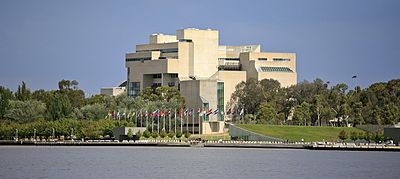
Back مراجعة قضائية Arabic Məhkəmə nəzarəti Azerbaijani Richterliches Prüfungsrecht German Revisión judicial Spanish بررسی قضایی Persian Laillisuusvalvonta Finnish Contrôle juridictionnel French ביקורת שיפוטית HE न्यायिक पुनरावलोकन Hindi Pengujian yudisial ID
| Administrative law |
|---|
| General principles |
| Grounds for judicial review |
|
Administrative law in common law jurisdictions |
|
Administrative law in civil law jurisdictions |
| Related topics |

Judicial review is a process under which a government's executive, legislative, or administrative actions are subject to review by the judiciary.[1]: 79 In a judicial review, a court may invalidate laws, acts, or governmental actions that are incompatible with a higher authority. For example, an executive decision may be invalidated for being unlawful, or a statute may be invalidated for violating the terms of a constitution. Judicial review is one of the checks and balances in the separation of powers—the power of the judiciary to supervise (judicial supervision) the legislative and executive branches when the latter exceed their authority. The doctrine varies between jurisdictions, so the procedure and scope of judicial review may differ between and within countries.
- ^ Elliott, Mark (2001). The constitutional foundations of judicial review. Oxford [England]: Hart Pub. ISBN 978-1-84731-051-4. OCLC 191746889.